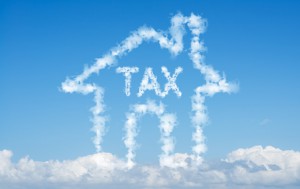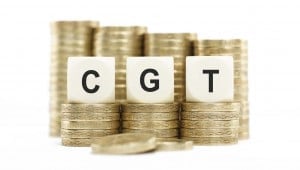When it comes to property investing, quite often there’s no reward — or usually no big reward in any case — without a little bit of risk.
Similarly, there’s almost always no reward without a heavy dose of reality. 
And that reality comes in the form of the tax department.
In the dizzying high of an investment gone well, when you’ve cashed in on your win and start imagining what you’re going to do with your healthy profit, it can be easy to temporarily forget that someone’s going to come knocking for their cut.
Capital Gains Tax is a reality of the real estate game.
There are ways to minimise it, but if you legitimately owe it, there’s absolutely no getting around it.
Here’s what you need to know.
What exactly is it?
In simple terms, if you’ve made a net profit on the sale of an investment property or other income-producing asset, you’re liable to pay Capital Gains Tax.
The gross capital gain is the difference between what you bought the place for and the sale price you’ve just received.
Minus deductions and other elements of the base cost is your net capital gain.
What deductions can you claim?
You can usually claim any costs associated with purchasing the property in the first place. 
Think of things like stamp duty, title search fees and so on.
Sometimes you can claim the costs of selling it, too.
If you lived in the property for a period of time — let’s say, you lived there for a year or so in the middle of it being an investment property, you could get a discount on the payable tax.
Also, if you’ve made any repairs to the property, in certain circumstances those can be claimed, too.
Say you had to repaint, replace broken fittings or put in new security doors between tenants a few years back, those are considered capital expenses and could be claimed.
When do you not have to pay it?
Let’s say you owned a rental property for eight years and you’ve just sold it, but for the last year you lived there and made it your principal place of residence.
On paper, you won’t have to pay a cent of Capital Gains Tax.
It was your home and therefore not an investment.
You’ve essentially reset the status of the property by moving in and making it your home.
There are rules and plenty of exceptions, and utilising this generous consideration can impact your choices down the road, so ask an expert for guidance.
If you bought the place before September 20, 1985, you don’t have to pay tax on any capital gain.
However, if you’ve renovated since then, which you probably have, you’ll pay tax on the improvements.
What if you’ve made a loss?
The flipside of Capital Gains Tax is what happens if you’ve made a loss. 
No one sets out to lose in the property investing game.
But say you do, you can carry forward that financial hit and claim it against a gain in the future.
Let’s say you lost $50,000 on a bad investment in 2016 and you’re liable for tax on a $100,000 capital win in this coming tax year.
The amount you’ll have to pay tax on will be $50,000.
Do your homework — and do the sums
If you think you’re sitting on a major capital gains liability, speak to an expert so you know your situation.
The last thing you want is a surprise in the future in the form of a big bill.
But the second-last thing you want is a lost opportunity to minimise what you’ll have to hand over to the tax departmen.














